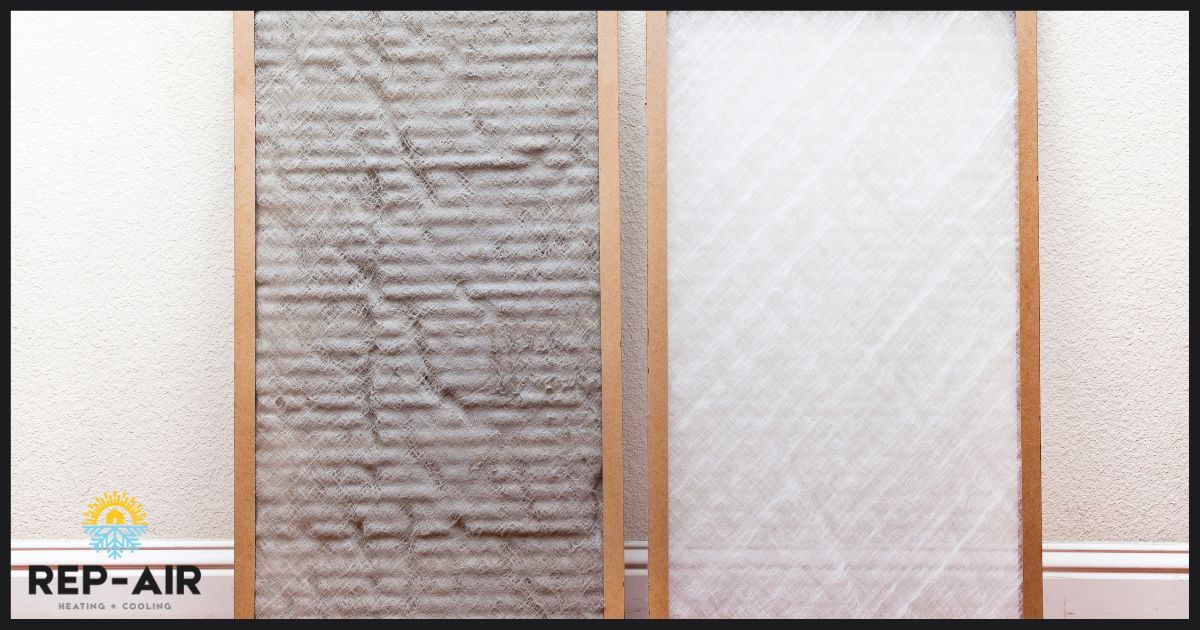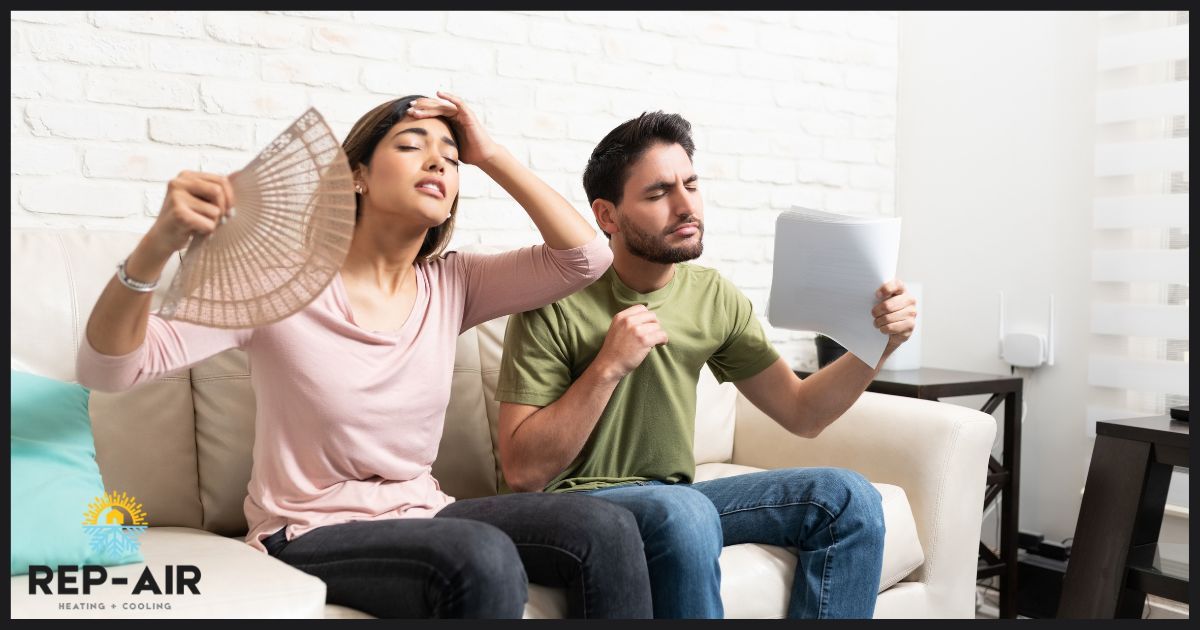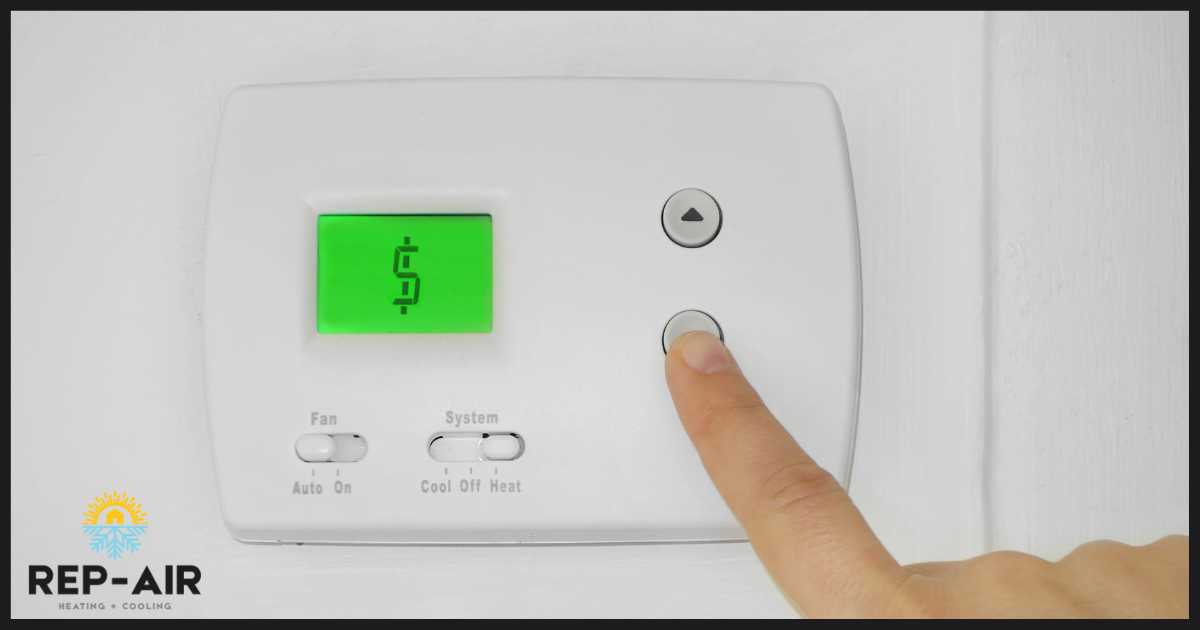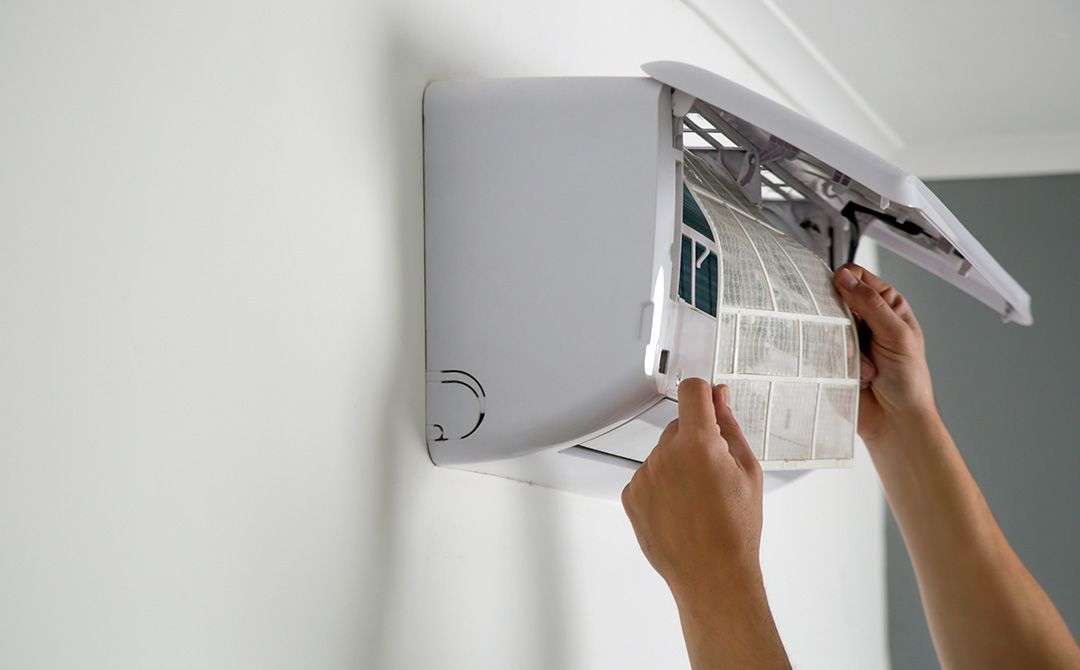Tips To Keep Your Air Filter Clean
The fall season brings allergies for some but for others, the answer to their allergy symptoms lies within the walls of their home. If your HVAC system’s air filter remains unchanged, this can lead to poor air quality and issues with the system itself. Air filters are an important part of your system and must be switched every couple of months. They are responsible for keeping larger particles out of your HVAC system and protecting it from harm, in addition to keeping dust and pollen out.
5 Things You Should Do To Maintain A Clean Filter
A big part of ensuring that your HVAC system is running smoothly and efficiently is to keep your air filter clean year-round. We recommend switching out your air filter at least every 90 days for best performance. Doing this will bring many benefits to the table such as improved air quality and extending the lifespan of your HVAC unit. Below are some helpful tips to keep your system’s air filter clean.
- Choose the right size and type of filter
- Clean the area around it
- Consider installing an air filtration system
- Keep track of changing dates
- Switch to pleated filters
Choose The Right Size And Type Of Filter
Yes, you heard that right! Unfortunately, no air filter is a one-size fits all which is why it is very important for homeowners to become familiar with their system’s air filter. So, don’t just go and buy any filter without checking first.
A simple way to do this is to conduct a visual inspection. Most filters come labeled with two size measurements that can be found along the filter’s side. Often there is a ‘nominal’ size written in big print, and an adjacent ‘actual’ size written in smaller letters. A good way to measure your current filter’s performance is by looking at its minimum efficiency reporting value, or MERV. MERV reports a filter’s ability to capture larger particles between 0.3 and 10 microns (µm). The higher the MERV rating, the better the filter is at trapping specific types of particles. Based on filter performance along the MERV scale, your home will most likely require a MERV 5 to 8 filter. If you don’t have any allergies or pets, MERV 1 to 4 is acceptable. However, if you have severe allergies, asthma, or lung problems, you should consider installing MERV 10 for additional filtration.
It is important to note that the higher the MERV, the smaller the filter pores. While this traps more pollutants, it also can cause your HVAC system to work harder to push air through. Our expert technicians can help perfectly match an air filter to your system and avoid it becoming overloaded. Give us a call to help select the right air filter for your home in Mission!
Clean The Area Around the Filter
The first protective measure in air filter maintenance is to keep the space around the system clean. Vacuum or wipe away leftover dust accumulation on the system’s external panels before and after replacing the filter as part of your cleaning routine. This practice enhances filter lifetime and performance, allowing it to successfully combat invisible allergens and pollutants.
Consider Installing An Air Filtration System
In recent years, air filtration systems have increased in popularity due to their ability to improve a space’s air quality levels. Installing an air filtration system in your home or office will help remove all sources of dust particles, pet dander, germs and other harmful contaminants that oftentimes contribute to the clogging of air filters. The best air filtration system for your space of choice will be determined by your unique preferences. We recommend you to speak with an expert to determine the best solution for you. At Rep-Air Heating & Cooling, we offer air filtration system services in Mission and surrounding areas and are happy to help you determine the most suitable filtration system for your home.
Keep Track of Changing Dates
Although this tip might seem silly, keeping an ongoing record of the dates when you replaced the filter as a maintenance reminder is key. A smart hack is to write the date of their last filter change on the filter itself to help them keep track. Doing so not only keeps note of when the filter has to be changed, but it also provides details on your system’s current performance. If the time between changes is shorter than usual, this might indicate a problem with the unit or ventilation system that you aren’t aware of.
Consider Switching To Pleated Filters
While fiberglass air filters will do the job, pleated air filters can be superior in most cases. Pleated air filters absorb smaller particles and are less prone to clog over time. Additionally, pleated filters are oftentimes biodegradable or reusable, making them more environmentally friendly, and their deeper pleats provide greater surface area to filter airborne pollutants.
Contact a Rep-Air Technician
Let us help ensure your home’s air quality remains high and HVAC-related costs remain low.
Give us a call at 1-844-218-3362 with any questions regarding your air filters in Mission. We are here to help keep you safe, comfortable, and breathing easy this season!










